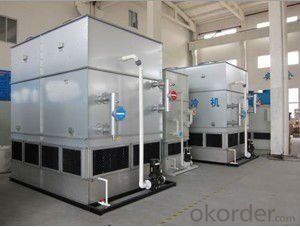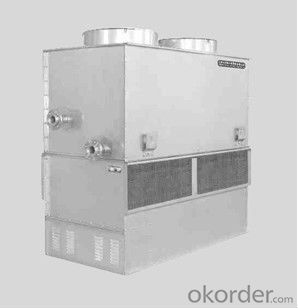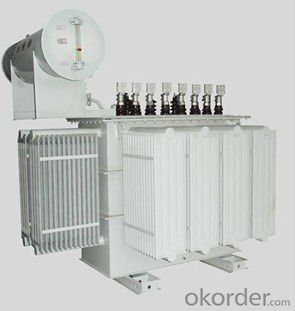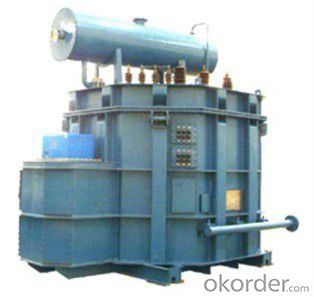Loading Port:Guangzhou
Payment Terms:TT OR LC
Min Order Qty:-
Supply Capability:-
| Packaging Detail: | plywood case and nude; wodden box; the packaging condition will be designed according to the real application and the customer's requirement. we will ensure the maximum safety of the equipment. |
| Delivery Detail: | 20 days after receipt of the payment |
1. Stable Performance
2. Fast Melting, no pollution
3. responsible for debugging and installation
4. MPU-6/11 control board
The induction furnace is mainly used for making steel and consist of devices like refractory-lined vessel and electrodes. electrodes are normally round in section and comes in segments with threaded couplings, so that as the electrodes wear, new segments can be added. the arc forms between the charged material and the electrode. the charge so formed is heated both by current passing through the charge and by the radiant energy evolved by the arc.
this type of furnace is widely used in latest foundries especially iron where now couplas are replaced by induction furnaces to melt cast iron. the use of couplas result in the emission of lots of dust and other pollutants but the use of induction furnace has minimized this problem to a larger extent. induction heating furnace comes in various sizes and configuration. however induction furnace has it's own limitation. the induction process used in foundries lacks refining capacity. charge materials must be clean of oxidation products and of a known composition, and some alloying elements may be lost due to oxidation (and must be re-added to the melt).
induction furnace capacities range from less than one kilogram to one hundred tonnes capacity, and are used to melt iron and steel, copper, aluminum, and precious metals. the one major drawback to induction furnace usage in a foundry is the lack of refining capacity; charge materials must be clean of oxidation products and of a known composition, and some alloying elements may be lost due to oxidation (and must be re-added to the melt).
the frequency of operation of induction furnace also vary. usually it depend on the material being melted, the capacity of the furnace and the melting speed required. a high frequency furnace is usually faster to melt a charge whereas lower frequencies generate more turbulence in the metal, reducing the power that can be applied to the melt.
when the induction furnace operates it emits a hum or whine (due to magnetostriction), the pitch of which can be used by operators to identify whether the furnace is operating correctly, or at what power level.
following are the features of induction furnace:
highest chemical durability.
lowest alloy losses.
leading to highest metal quality with respect to impurities.
high refractoriness.
available in various sizes.
comes in different capacities.
applications
these furnace are designed from various applications. for applications such as adhesive curing and paint drying, the parts are simply inserted into the heating chamber and the furnace is activated. following are the application of induction furnace
curing
drying
copper
brazing
soldering
melting
stainless steel
iron castings
foundries
Technical data
melting ] model | rated capacity (T) | rated power (KW) | frequency (KHZ) | input votlage (V) | MF voltage(V) | furance voltage (V) | work temp.(°C) | melting rate (T/H) | melting time (MIN) | power consumption (KWH/T) | water cooling capacity |
| WR-GWT-0.015 | 0.015 | 30 | 1 | 380 | 750 | 750 | 1300 | 0.15 | 20 | 450 | 3 |
| WR-GWT-0.03 | 0.03 | 60 | 1 | 380 | 750 | 750 | 1300 | 0.1 | 20 | 450 | 3 |
| WR-GWT-0.05 | 0.05 | 60 | 1 | 380 | 750 | 750 | 1300 | 0.1 | 35 | 450 | 5 |
| WR-GWT-0.01 | 0.1 | 80 | 1 | 380 | 750 | 1500 | 1300 | 0.13 | 40 | 420 | 5 |
| WR-GWT-0.15 | 0.15 | 100 | 1 | 380 | 750 | 1500 | 1300 | 0.17 | 40 | 400 | 5 |
| WR-GWT-0.3 | 0.3 | 160 | 1 | 380 | 1200 | 2500 | 1300 | 0.3 | 60 | 390 | 7 |
| WR-GWT-0.5 | 0.5 | 250 | 1 | 380 | 1200 | 2500 | 1300 | 0.5 | 60 | 390 | 8 |
| WR-GWT-1 | 1 | 500 | 1 | 380 | 1200 | 2500 | 1300 | 1.2 | 50 | 380 | 12 |
| WR-GWT-1.5 | 1.5 | 800 | 0.75 | 720 | 1200 | 2500 | 1300 | 1.8 | 50 | 380 | 15 |
| WR-GWT-2 | 2 | 1000 | 0.5 | 720 | 1200 | 2500 | 1300 | 2.5 | 50 | 370 | 20 |
| WR-GWT-3 | 3 | 1500 | 0.5 | 720 | 1200 | 2500 | 1300 | 3.3 | 55 | 370 | 35 |
| WR-GWT-5 | 5 | 2500 | 0.3 | 720 | 1200 | 2500 | 1300 | 5.5 | 55 | 360 | 48 |
| WR-GWT-8 | 8 | 3500 | 0.5 | 1000 | 1650 | 3400 | 1300 | 7 | 70 | 360 | 55 |
| WR-GWT-10 | 10 | 5000 | 0.25 | 1000 | 1650 | 3400 | 1300 | 12 | 60 | 350 | 60 |
Open Cooling Tower

Product Description:
Open cooling tower principle is that the circulating water spray, spray glass fiber filler, through the contact of water and air to reach the heat exchanger, and then there are fan driven by the tower air circulation, with water the hot air after the heat exchanger to bring out, so as to achieve the cooling.
Technical Parameter:
| Model | Flowing | Dimension | Pipe Size | Fan Assemkly | Weight | ||||
| 28°C | L | W | H | Water In/Out | Power | No. | Net | Operating | |
| (m3/h) | mm | mm | mm | mm | kw | kg | kg | ||
| FKN-30 | 30 | 1500 | 1500 | 3000 | 65 | 2.2 | 1 | 1000 | 1500 |
| FKN-40 | 40 | 2000 | 2000 | 3000 | 80 | 3 | 1 | 1250 | 2200 |
| FKN-50 | 50 | 2000 | 2000 | 3500 | 100 | 3 | 1 | 1500 | 2500 |
| FKN-60 | 60 | 2000 | 2000 | 3500 | 100 | 3 | 1 | 1800 | 2800 |
| FKN-70 | 70 | 2500 | 2000 | 3750 | 100 | 4 | 1 | 1900 | 3000 |
| FKN-80 | 80 | 2500 | 2000 | 3750 | 125 | 4 | 1 | 2000 | 3500 |
| FKN-100 | 100 | 3000 | 2000 | 4000 | 125 | 5.5 | 1 | 2200 | 4000 |
| FKN-125 | 125 | 3000 | 2000 | 4000 | 125 | 7.5 | 1 | 2500 | 4500 |
| FKN-150 | 150 | 4800 | 2000 | 4000 | 100*2 | 4 | 2 | 2800 | 5000 |
| FKN-175 | 175 | 4800 | 2000 | 4000 | 125*2 | 4 | 2 | 3000 | 5500 |
| FKN-200 | 200 | 4800 | 2000 | 4000 | 125*2 | 5.5 | 2 | 3500 | 5000 |
Colsed Cooling Tower

Product Description:
Closed cooling tower using soft water closed loop, to avoid the pipeline because of the scaling gradually reduce the flow, or even obstruction caused by components overheating damage (such as tubes, SCR, IGBT power, reactors, capacitors, induction coil, etc.). The power supply is cooled with the furnace shunt.
Closed cooling tower equipment by the host, the expansion tank, circulation pump and the control cabinet. Host by the shell, heat exchangers, fans, sprinkler system, in addition to water heaters, water tank and pipeline valves and other parts.
The closed cooling tower has two modes of operation, namely: air-cooled, air-cooled + spray, the switching of the two modes according to the working conditions by the electronic control system requirements automatically to achieve energy saving.
Induction Furnace Transformer

Product Description:
Intermediate frequency electric furnace rectifier transformer is provided for the intermediate frequency electric furnace dedicated transformer rectifier power supply, according to the load characteristics of the intermediate frequency electric furnace, the transformer harmonic current overload, good cooling effect.
Arc Furnace Transformer

Product Description:
Electric arc furnace transformer has the characteristics of ordinary transformer, but also to meet the special requirements of the steelmaking process, there is a certain overload capability and short circuit withstand mechanical strength. Regulation of the electric arc furnace transformer is divided into two kinds of load voltage regulation and excitation voltage. Load voltage regulation of the electric arc furnace transformer without series reactor. Excitation voltage of the electric arc furnace transformer structure is divided into two kinds with a series reactor and without the series reactor. Both structures can be at the highest secondary voltage to change the impedance, the former rely on the input series reactor and removal to change the impedance, while the latter is by changing the electric arc furnace transformer high voltage winding way of linking the change impedance.